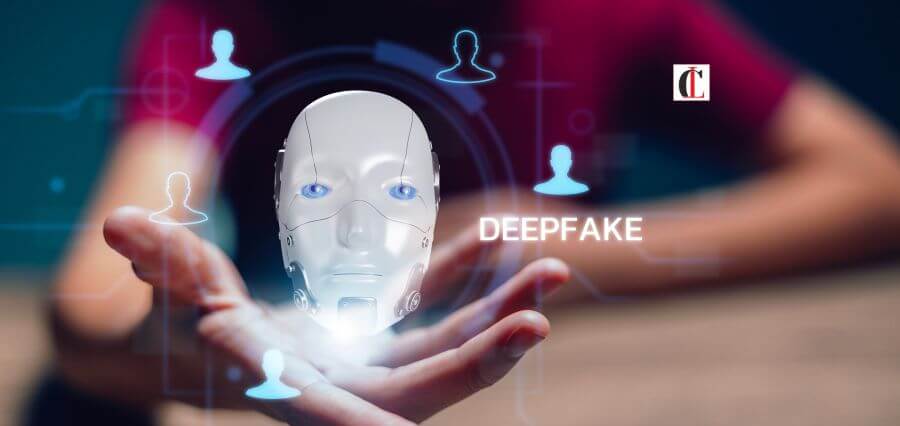The development of generative AI and deepfake technologies in the last few years has been unprecedented. This field uses algorithms by which images, videos, or even audio have been created that are almost photorealistic representations of real people or events. They offer exciting possibilities for creativity and innovation but also raise essential questions about ethics. It is important for society to understand these considerations as it navigates the implications of such powerful tools.
Rise of Generative AI and Deepfakes
Generative AI Algorithms that are capable of generating new output on the basis of a strong understanding of the existing data include everything from the creation of art and music to producing natural-looking text.
Deepfake technology refers specifically to applications of generative AI in the construction of super-realistic fake videos or audio recordings. These tools rely on deep learning techniques, involving the training of neural networks on vast amounts of data to produce convincing outputs.
Generative AI has been widely applied in various industries. For instance, in entertainment industries, they use these technologies to produce fabulous visual and audio effects, voiceover services, even to revive the deceased actors or stars in a movie. According to reports on the International Data Corporation (IDC), by 2026, the market on AI-generated content would reach $300 billion. A growth like this points out the benefits but also reminds one that, very seriously, this is an area where ethical approaches are very much called into questions.
Misinformation and Manipulation
The most significant ethical concern related to deepfakes and generative AI is the issue of misinformation. Since this technology enables one to create highly authentic, fake videos or audio clips, it can potentially manipulate popular opinion as well as disseminate false information.
It has been revealed by an article that emerged in the “Nature” journal that deepfakes may make it more probable for untrue information to spread through social media channels. In fact, the researchers determined that 70% of subjects reported believing the deepfake video to be genuine when it supported previously held beliefs.
The effect of disinformation is grave indeed. For example, during an election, deepfakes can be utilized in order to spread false information about candidates, which may lead to breeches of the democratic process. Deepfakes can also be instruments of harassment or defamation where reputations of individuals can be battered and bruised with no redress.
Privacy Issues
Another important issue with these generative AI and deepfakes technologies has been privacy. This technology pretty easily replicates someone’s likeness without their consent, raising important questions about individual rights over one’s image and voice. For instance, as reported by the Pew Research Center, 48% of Americans said they were concerned about the use of their images in deepfake videos without consent.
Such a lack of consent can lead to negative consequences, especially with people represented in compromising or damaging situations. It is quite frightening when celebrities, public figures, are involved and arguably have limited control over their likenesses. With the rapid advancement of technology, the concept of protecting personal privacy becomes even more of a challenging endeavor in a world where anyone can create credible representations of others.
Legally speaking and regulation
As the technology of such generative AI and deepfakes improves, an increased need is felt for legal frameworks so that what would otherwise be considered an ethical concern can indeed be dealt with legally. Laws about deepfakes are still being developed and are quite different between jurisdictions. In some countries, there are specific legislations against using deepfakes for someone’s detriment while in the others, it falls under a broader general doctrine related to defamation or copyright.
In the United States, several states introduced bills that may regulate deepfakes in some contexts, such as elections and pornography. Laws, however, critics charge fall considerably short of dealing with the more profound considerations that accompany generative AI technologies. Only then will ethical use be guaranteed, if an all-encompassing legal framework is developed to include all aspects of generative AI regarding consent, accountability, and transparency.
Education and Awareness in Regulation
It is essential for education to counterbalance the risks generated by generative AI and deepfakes. Equipping users with education on the way these technologies work helps them critically analyze what they view online. Schools and learning institutions must implement digital literacy programs teaching the students how to identify possible misinformation as well as what implications deepfakes can cause.
Media organizations have a role to play in continuing to report on the existence and capabilities of these technologies. Context setting with deepfake content—such as labeling manipulated videos—by media outlets will assist in combating misinformation and could also coax more responsible consumption.
Generative AI’s Future
Then, the future of generative AI speaks of promise and peril. Potential applications may change industries from entertainment to education in real ways, opening new avenues for creativity and efficiency. However, that unregulated development can trigger a tide of deception and erosion of trust in digital content puts the subject into precarious balance.
It is, then, a critical time for society to bring ethical considerations into the stages of development and deployment as it advances with these technological changes. Technologies and policymakers, ethicists, and educators together will have to take on the challenge to create a future that makes generative AI useful for and not disastrous against humanity.
Conclusion
In today’s digital world, generative AI and deepfake technologies are two-edged swords. On one hand, they open up new horizons for creativity and expression. On the other hand, they throw up numerous ethical challenges about misinformation, violations of privacy, understanding legal frameworks and education. All stakeholders need to act together. Technologists must innovate responsibly, lawmakers must frame effective regulations, educators must begin teaching digital literacy, and society must engage creatively with content online.
Thus, technology can aim at an ethical environment of development to strike the balance between the benefit and the risk of generative AI. Society will be able to navigate the labyrinth with honor and vision.

